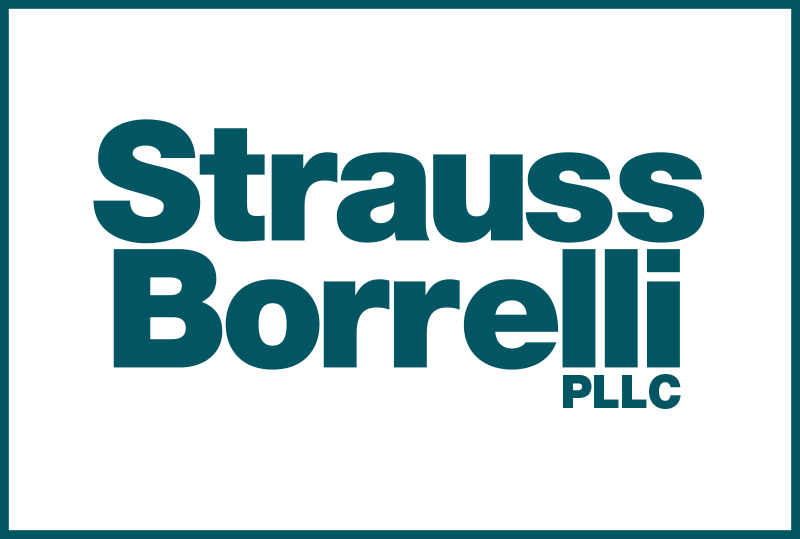Privacy Litigation
Protecting Your Privacy Rights.
Privacy is a fundamental right. But every day, corporations are invading your privacy (and getting rich doing so). Some track your online activity. Others harvest your data and sell it. And some make detailed profiles about you without your consent.
Fortunately, in the United States, there are many laws that protect your privacy. But too often, corporations ignore these laws—and get rich by invading your privacy. Whenever this happens, we pursue class action litigation to (1) hold the corporations accountable, and (2) secure compensation for people whose privacy was invaded.
Tracking Pixels
Many businesses make money by tracking your online behavior. Often, they do this by using a technology called a “pixel”—an invisible tracking tool that is inserted in web pages, emails, and online advertisements.
But too often, businesses abuse this pixel technology. For example, many businesses and organizations use a tracking pixel to collect your information (e.g., location, phone number, medical information). But some businesses and organizations collect your private information and then share that information to tech companies like Facebook.
VPPA Litigation
The Video Privacy Protection Act (“VPPA”) may provide privacy protections for your video viewing history. Historically, VPPA was used to protect the video viewing histories of customers of brick-and-mortar video rental businesses. But given the rise of video streaming, VPPA may also protect your digital video viewing histories.
Unfortunately, too many businesses ignore the VPPA. Specifically, many businesses collect information—about your video viewing history—and then share that history to tech companies like Facebook.
DPPA Litigation
The Driver’s Privacy Protection Act (“DPPA”) may provide privacy protections for information in your motor vehicle record. But too often, companies ignore the DPPA. Specifically, some businesses (1) collect information about you from your motor vehicle record, and then (2) use that information to make money.
Right of Publicity
The “right of publicity” helps you control your identity. Specifically, the right of publicity gives you complete control over the commercial use of your name, image, and likeness. Thus, a business cannot use your name, image, or likeness to make money without your consent.
Unfortunately, businesses often ignore your right of publicity. For example, some businesses make money by collecting and selling information about your name, image, and likeness (e.g., third-party marketers, data aggregators, and data brokers).
Some Notable Cases
Boshears, et al. v. PeopleConnect, Inc., et al. (W.D. Wash.)
Filed on behalf of Indiana residents against PeopleConnect alleging violations of Indiana’s Right of Publicity Statute and Indiana’s common law prohibiting misappropriation of a name or likeness. Plaintiffs allege that PeopleConnect violates these legal rights by using Indiana residents’ personalities, including their names and childhood photographs, in advertisements promoting paid subscriptions to its website, classmates.com. The case is currently on appeal before the United States Court of Appeals for the Ninth Circuit.
Loendorf v. PeopleConnect, Inc., et al. (N.D. Ill.)
Mackey v. PeopleConnect, Inc., et al. (N.D. Ill.)
Both actions were filed on behalf of Illinois residents against PeopleConnect alleging violations of Illinois’ Right of Publicity Act and Illinois common law prohibiting unjust enrichment. Plaintiffs allege that PeopleConnect violates these legal rights by using Illinois residents’ names, personas, and personal information in advertisements promoting paid subscriptions to its website, classmates.com, and unlawfully profiting from it. The cases are pending in the United States District Court for the Northern District of Illinois.
Sessa, et al. v. Ancestry.com Operations Inc., et al. (D. Nev.)
Filed on behalf of Nevada residents against Ancestry.com alleging violations of Nevada’s right to publicity statute, Nevada law prohibiting deceptive trade practice, Nevada common law protection against Intrusion upon Seclusion, and Nevada Unjust Enrichment law. Plaintiffs allege that Ancestry.com violates these legal rights by knowingly misappropriating the photographs, likenesses, names, and identities of Nevada residents for the commercial purpose of selling access to and advertising them in Ancestry.com products and services without their prior consent. The case is pending in the United States District Court for the District of Nevada.
Braundmeier v. Ancestry.com Operations, Inc., et al. (N.D. Ill.)
Filed on behalf of Illinois residents against Ancestry.com alleging violations of Illinois’ Right of Publicity Act and Illinois common law prohibiting unjust enrichment. Plaintiffs allege that Ancestry.com violates these legal rights by knowingly misappropriating the photographs, likenesses, names, and identities of Illinois residents for the commercial purpose of selling access to and advertising them in Ancestry.com products and services without their prior consent. The case is pending in the United States District Court for the Northern District of Illinois.
Spindler v. Seamless Contacts Inc. (N.D. Cal.)
Filed on behalf of California residents against Seamless Contacts Inc. alleging violations of California law that recognizes the intellectual property and privacy rights of individuals to control the commercial use of their names and likenesses. Plaintiffs allege that Seamless Contacts violates these legal rights by using California residents’ names, likenesses, photographs, and personas in advertisements promoting paid subscriptions to its website, seamless.ai. The case is pending in the United States District Court for the Northern District of California.
Martinez v. ZoomInfo Technologies Inc. (W.D. Wash.)
Filed on behalf of California residents against ZoomInfo Technologies Inc. alleging violations of California law that recognizes the intellectual property and privacy rights of individuals to control the commercial use of their names and likenesses. Plaintiffs allege that ZoomInfo Technologies violates these legal rights by using California residents’ names and person information in advertisements promoting paid subscriptions to its website, zoominfo.com, as well as selling access to their names and personal information as part of its products. The case is currently on appeal before the United States Court of Appeals for the Ninth Circuit.
Gbeintor v. DemandBase, Inc., et al. (N.D. Cal.)
Filed on behalf of California residents against DemandBase, Inc. and InsideView Technologies, Inc. alleging violations of California law that recognizes the intellectual property and privacy rights of individuals to control the commercial use of their names and likenesses. Plaintiffs allege that DemandBase and InsideView Technologies violate these legal rights by using California residents’ names, likenesses, photographs, and personas in advertisements promoting paid subscriptions to its website, insideview.com, without their consent. The case is currently on appeal before the United States Court of Appeals for the Ninth Circuit.
Kellman, et al. v. Spokeo, Inc. (N.D. Cal.)
Filed on behalf of California residents against Spokeo, Inc. alleging violations of California law that recognizes the intellectual property and privacy rights of individuals to control the commercial use of their names and likenesses. Plaintiffs allege that Spokeo violates these legal rights by using California residents’ names, likenesses, photographs, and personas in advertisements promoting paid subscriptions to its website without their consent. The case is pending in the United States District Court for the Northern District of California.

